On December 17th, with the theme of “Excellent Traditional Culture and Chinese Modernization - Economics and Management”, the National “Haiyou” Doctoral Academic Forum was held on the central campus of Shandong University. It was hosted by the Graduate School and the Graduate Working Department of the Party Committee, and undertaken by the Humanities and Social Sciences Journal Society and the School of Management. Sang Xiaomin, member of the Standing Committee of the Party Committee and Minister of the Propaganda Department of Shandong University, Liu Guoliang, Executive Vice President of the Graduate School and Minister of the Graduate Working Department of the Party Committee, and Wu Changqi, Dean of the School of Management, attended the forum and delivered speeches.
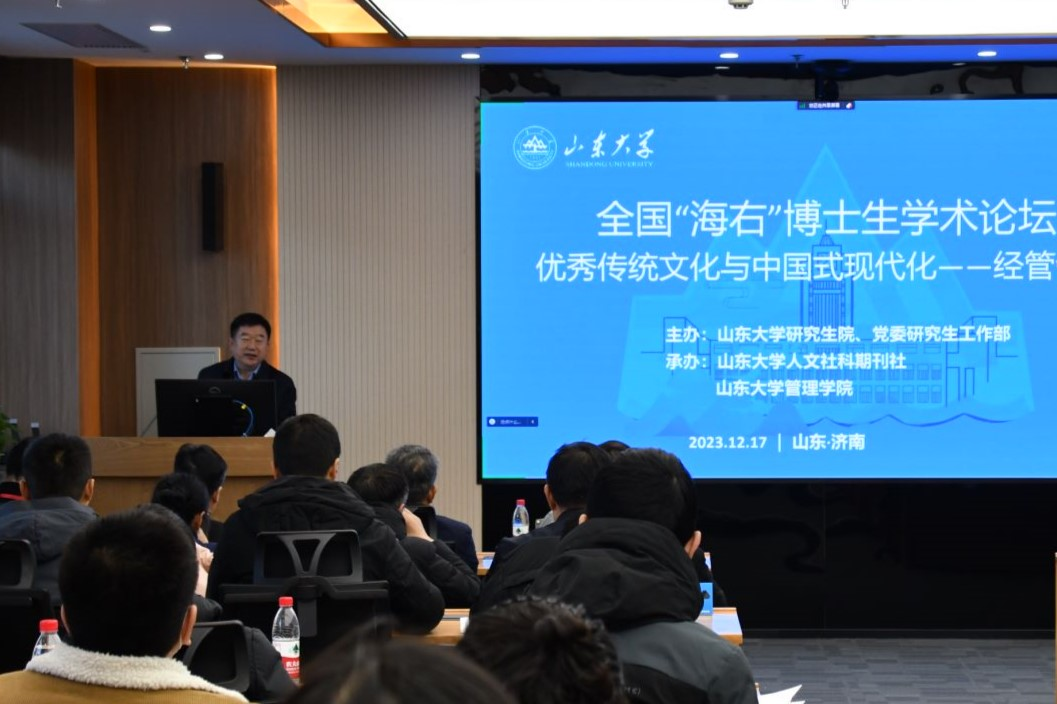
Minister Sang said in his speech that Shandong University has created a liberal arts journal array represented by the Journal of Chinese Humanities, and always focused on integrating the excellent traditional culture and Chinese management thought and practice with China’s economic theories, contributing to the construction of China’s discourse system and the enhancement of the country’s cultural soft power. It is hoped that the participating experts and scholars will discuss the application of Chinese excellent traditional culture in the field of economics and management, contributing academic wisdom to Chinese modernization.
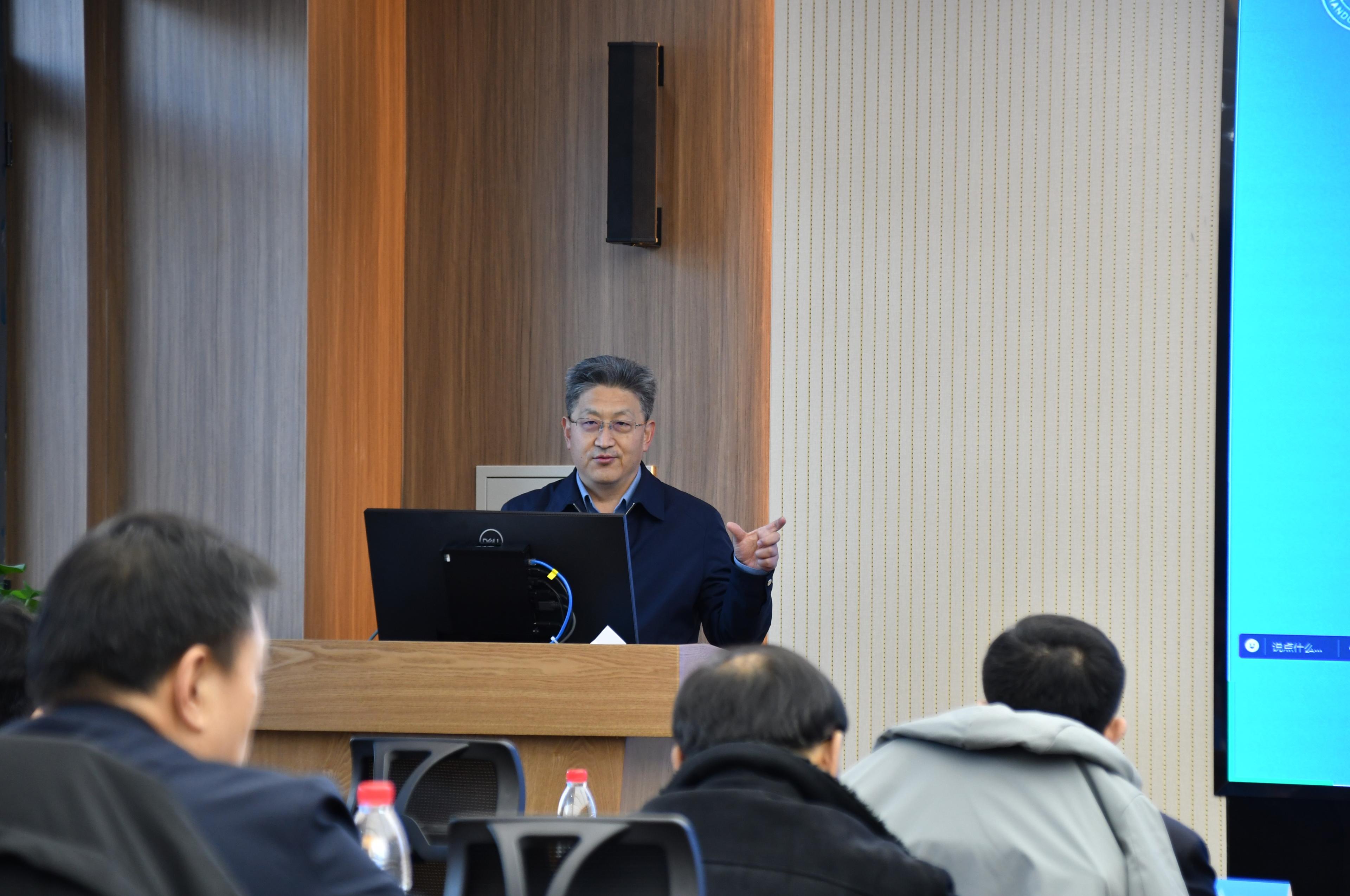
Minister Liu pointed out in his speech that the doctoral education of Shandong University has cultivated several talents for the economic and social development of the country, and laid a solid foundation for the reserve of high-level and professional talents in all walks of life. The young doctoral students in the new era should be more determined to the cultural confidence and contribute to the theoretical system construction of economics and management with Chinese characteristics.

Dean Wu said in his speech that in recent years, the School has made breakthroughs in the development of faculty teams, research projects, research platforms, teaching and work achievements, etc. He hoped that after the forum, a platform can be built for high-level talents and young scholars to show high-level results, which can help to accurately understand the intrinsic connection between Chinese traditional culture and Chinese modernization, advancing the rejuvenation of the Chinese nation on all fronts through a Chinese path to modernization.
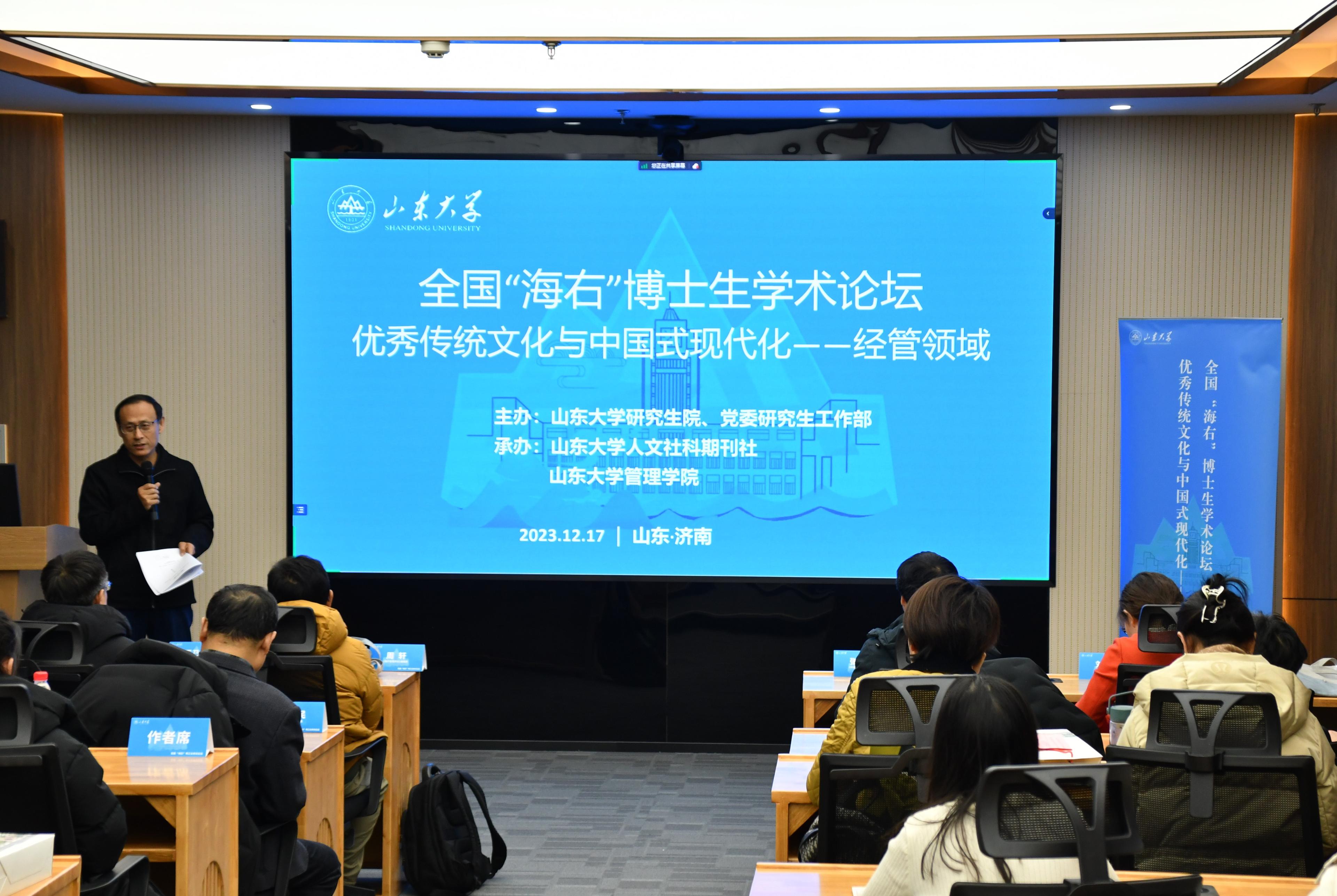
Wei Jian, president of Shandong University Humanities and Social Sciences Journal Society, editor-in-chief of the Journal of Shandong University (Philosophy and Social Sciences), and professor of Zhongtai Securities Institute for Financial Studies of Shandong University, presided over the opening ceremony.
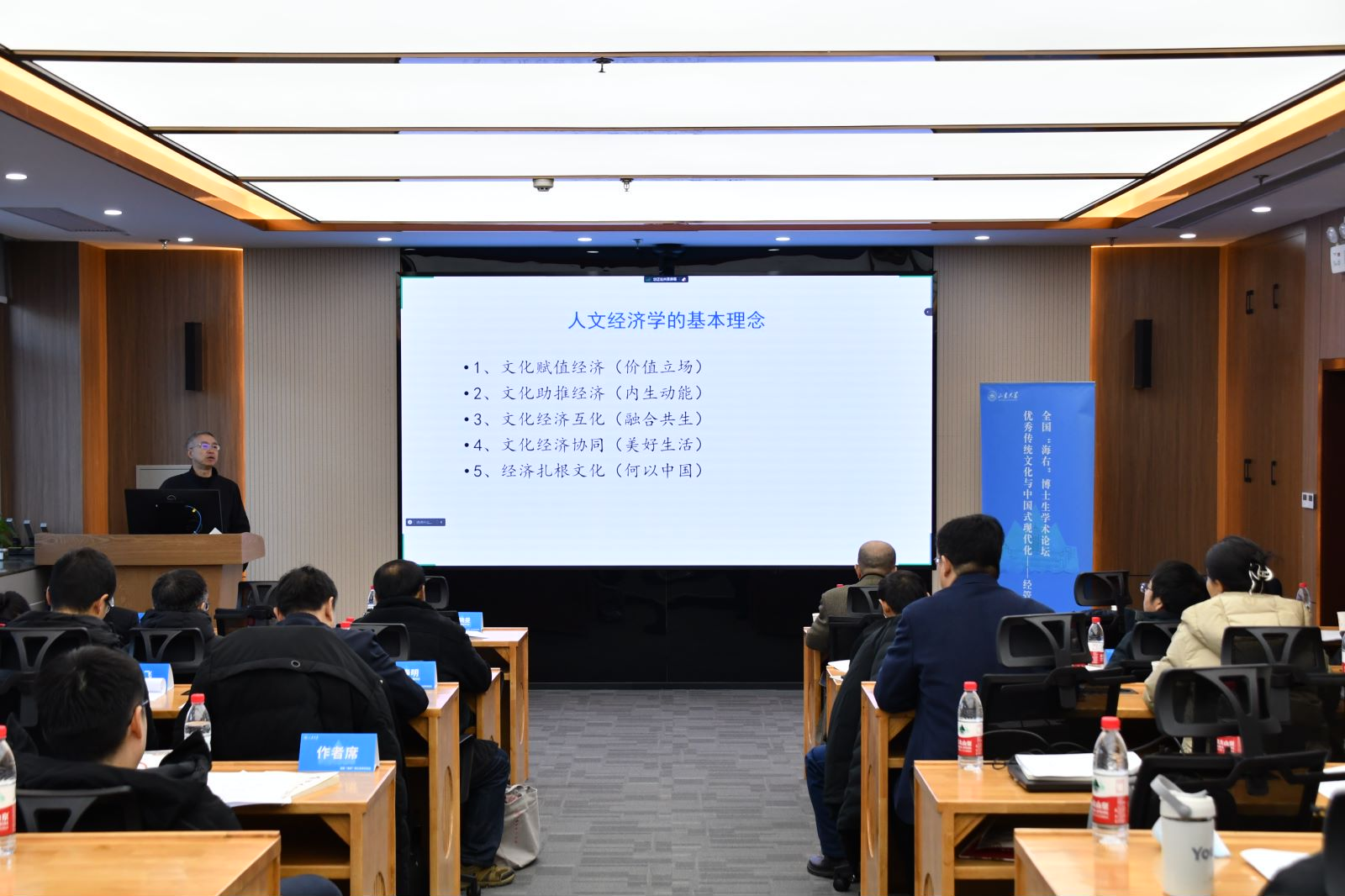
Professor Wei Pengju, Director of the Institute of Culture and Economics of the Central University of Finance and Economics, gave a keynote speech entitled “Humanistic Economics: Cultural Self-consciousness and Theoretical Confidence”, introducing the basic connotations of Humanistic Economics from the perspectives of Cultural Value-endowed Economy, Culture-driven Economy, Cultural and Economic Mutual Transformation, Cultural and Economic Synergy, and Culture-rooted Economy and proposing that “credibility” is the core value of Chinese business ethics.
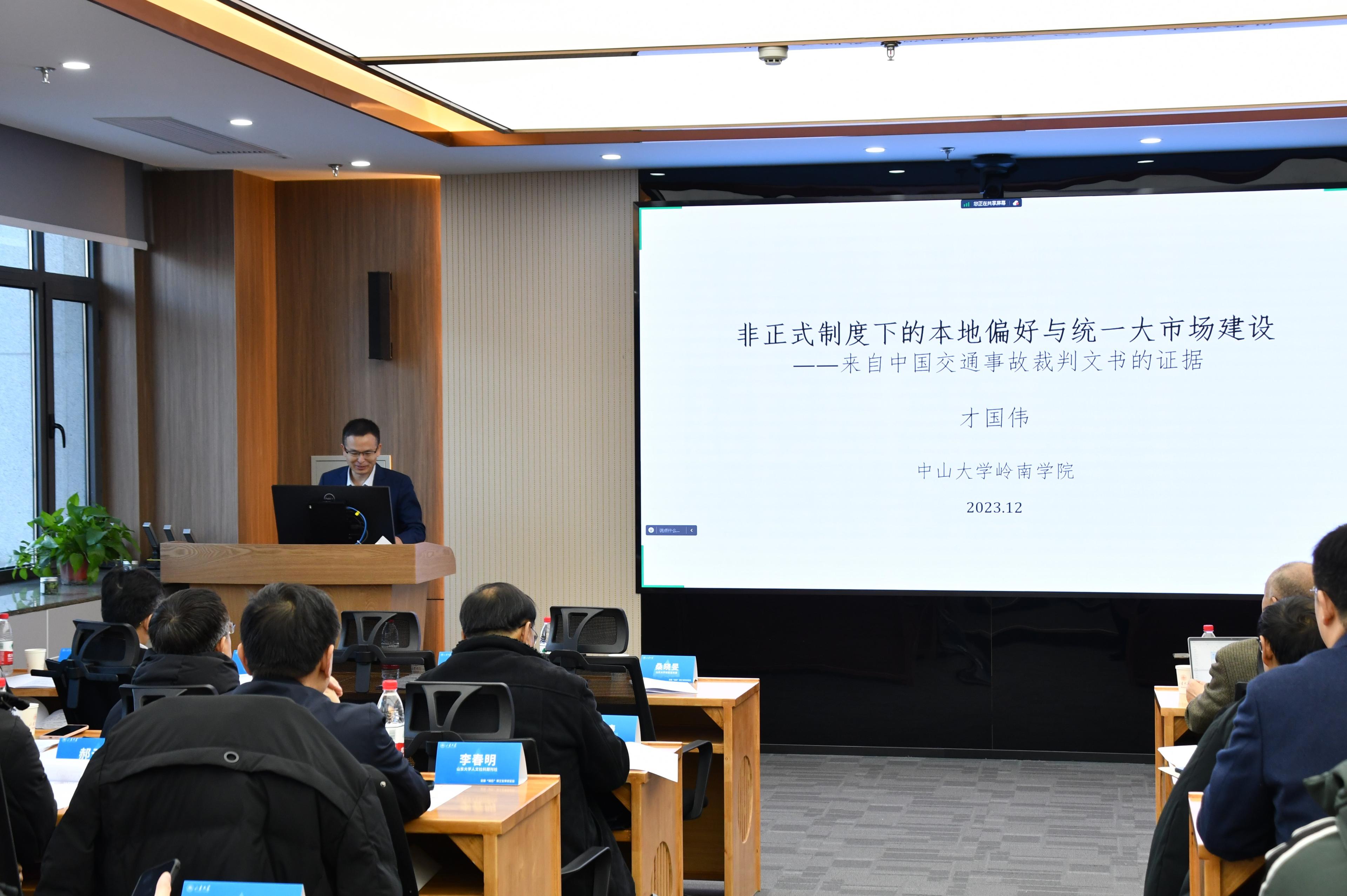
Professor Cai Guowei of Lingnan College, Sun Yat-sen University, gave a keynote speech entitled “Local Preferences under Informal System and the Construction of a Unified Big Market”. Based on the data of traffic accident adjudication documents, he interpreted local preferences under the informal system from a new perspective, i.e. the difference in the winning rate between foreign and local plaintiffs, and further analyzed the causes of local preferences and its impact on the construction of a unified big market.
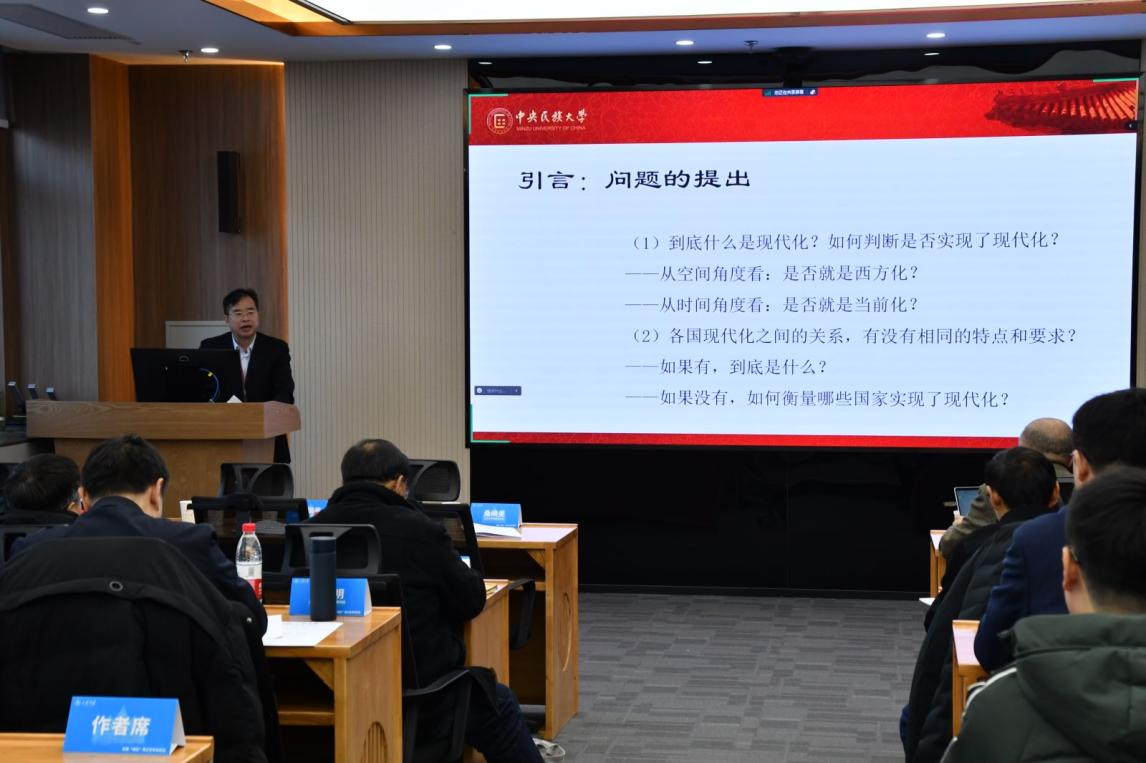
Professor Feng Yanming of the School of Economics, Minzu University of China, gave a keynote speech entitled “Research on Modernization and its Criteria - Based on the Perspective of Chinese Economics”. Based on the analysis and research on the theoretical foundation, ideological evolution and practical logic of modernization in China and Western countries, the meaning, symbols, and standards of modernization will be determined which can provide theoretical support and practical guidance for the correct and complete realization of the Chinese modernization.
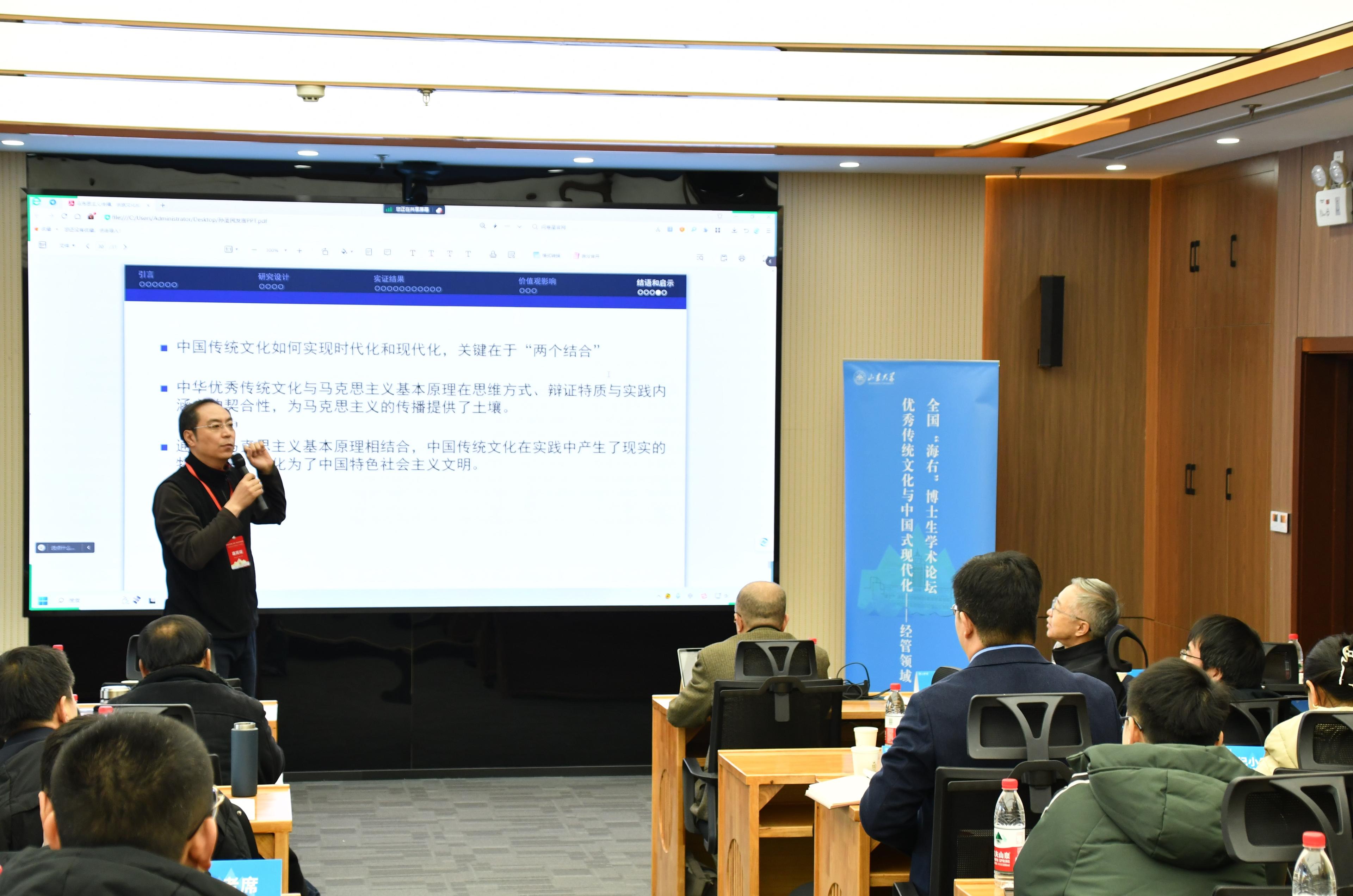
Professor Sun Shengmin of the School of Economics, Renmin University of China, gave a keynote speech entitled “Marxism Dissemination, Clan Culture and Farmers’ Income”, in which he found that retaining the excellent qualities of the traditional clan culture while giving it a spirit of aggressiveness, transforming it into modern culture, and adapting it to today’s economic and social development is a way of combining the basic principles of Marxism with the excellent traditional Chinese culture, which is of great significance in advancing Chinese modernization.
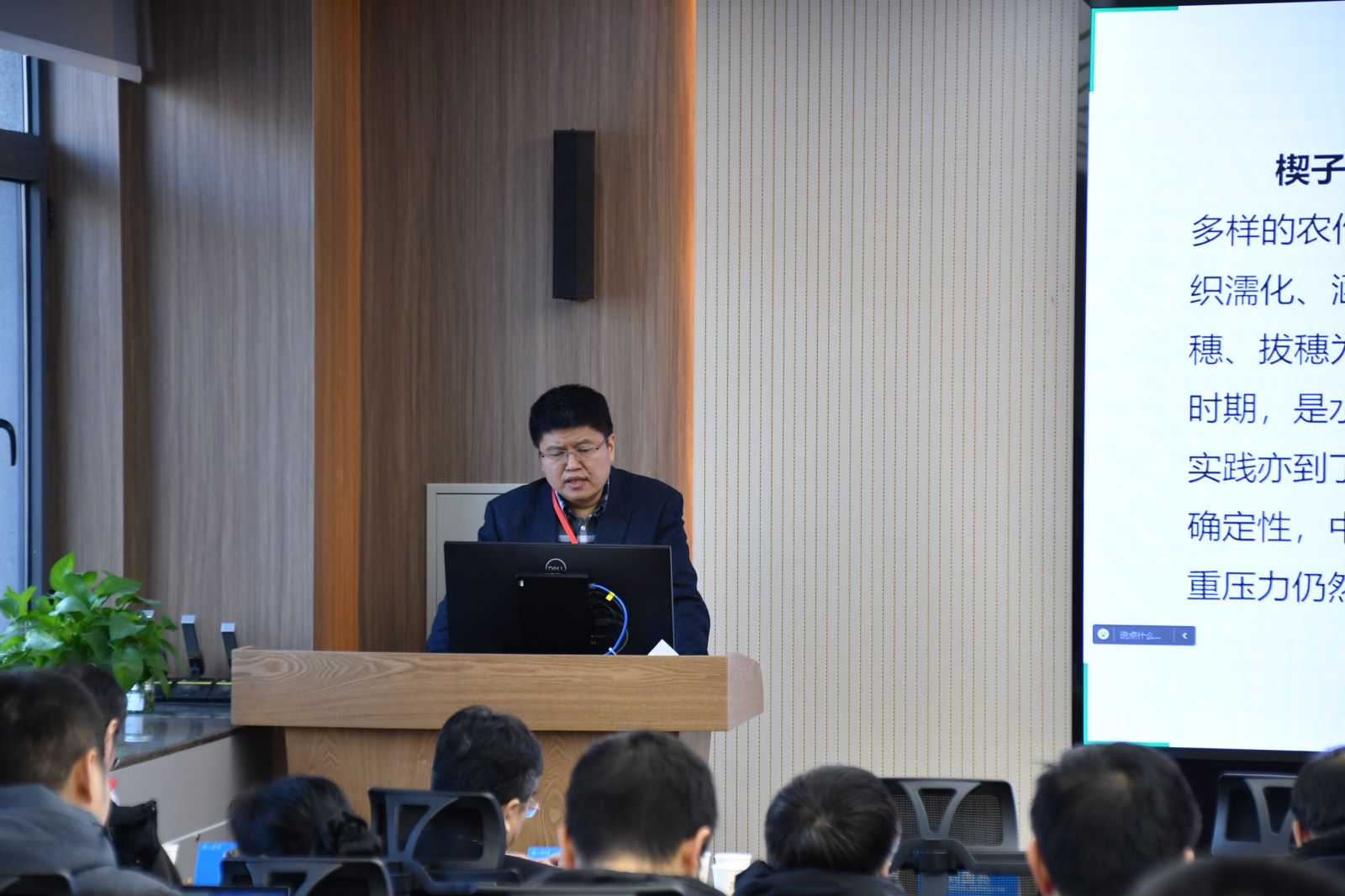
Professor Sun Tao, Vice Dean of the Center for Economic Research of Shandong University, made a report entitled “From Chinese Growth to Chinese Modernization”, proposing that China’s economic growth and society governance have reached a new stage, which require the improvement of the governance capacity and the whole governance system containing the economic governance, and the good interaction and combination of a competent government and an effective market can promote the long-term stable and healthy growth of China’s economy.
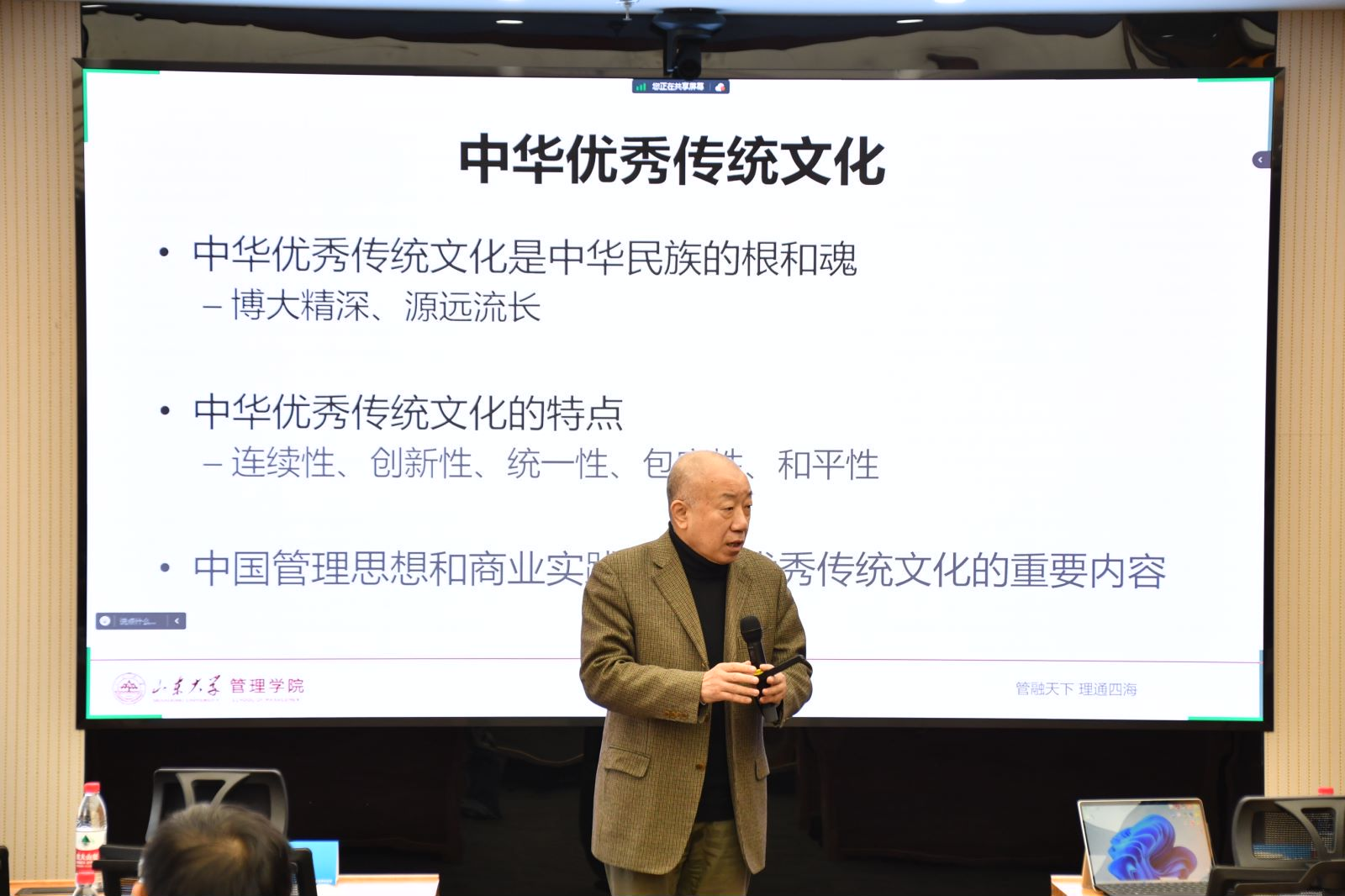
Professor Wu Changqi made a speech entitled “Chinese Culture and Modern Business Civilization”. He pointed out that Chinese culture is profound with a long history which promotes the building of a community with a shared future for mankind and its construction needs the support of the high development of modern business civilization, while the excellent traditional Chinese culture provides the basis for the construction of China’s world-class enterprises.
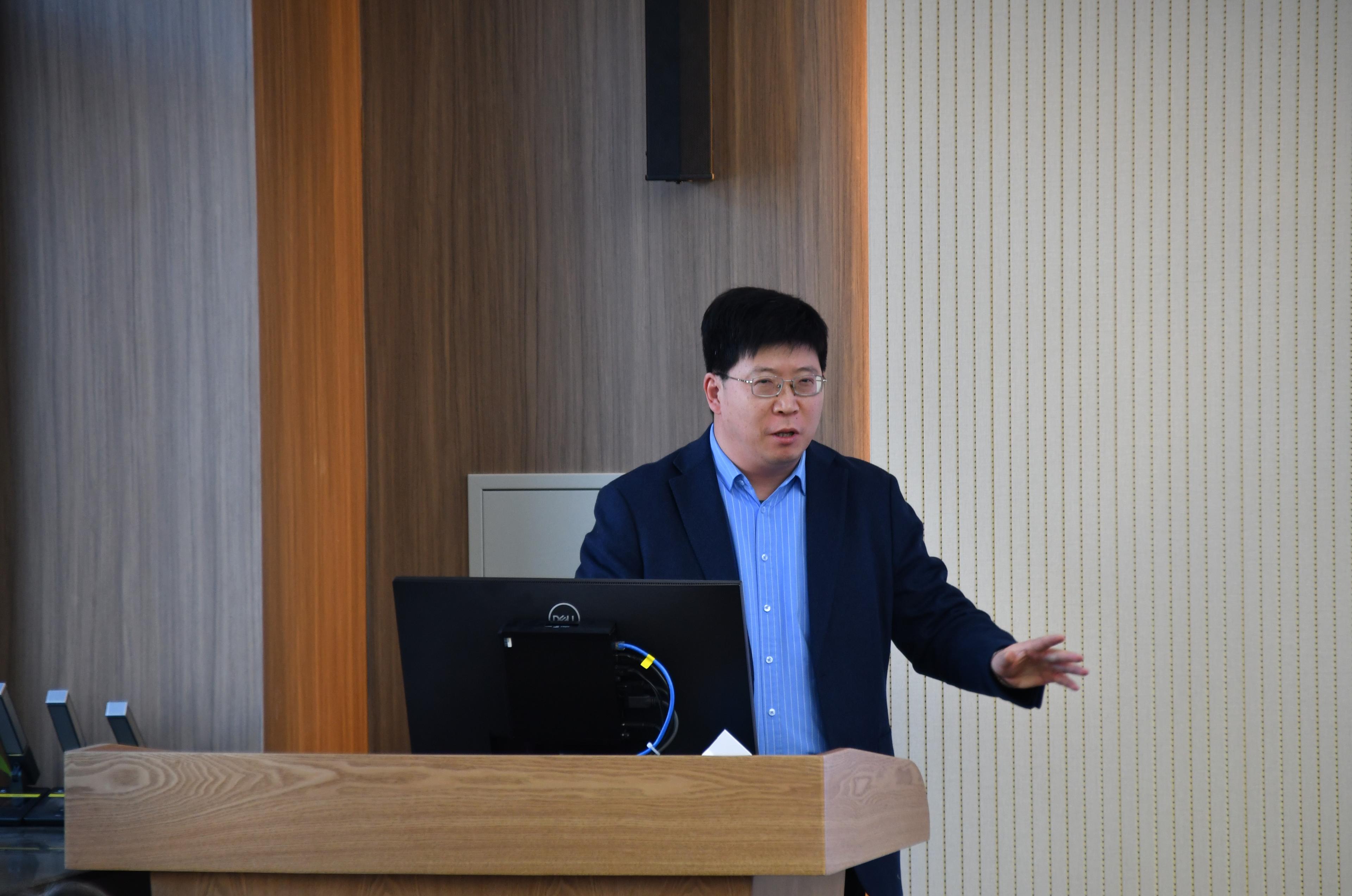
The keynote speeches were hosted by Professor Wei Jian and Ding Peiwei, Vice President of the Humanities and Social Sciences Society.
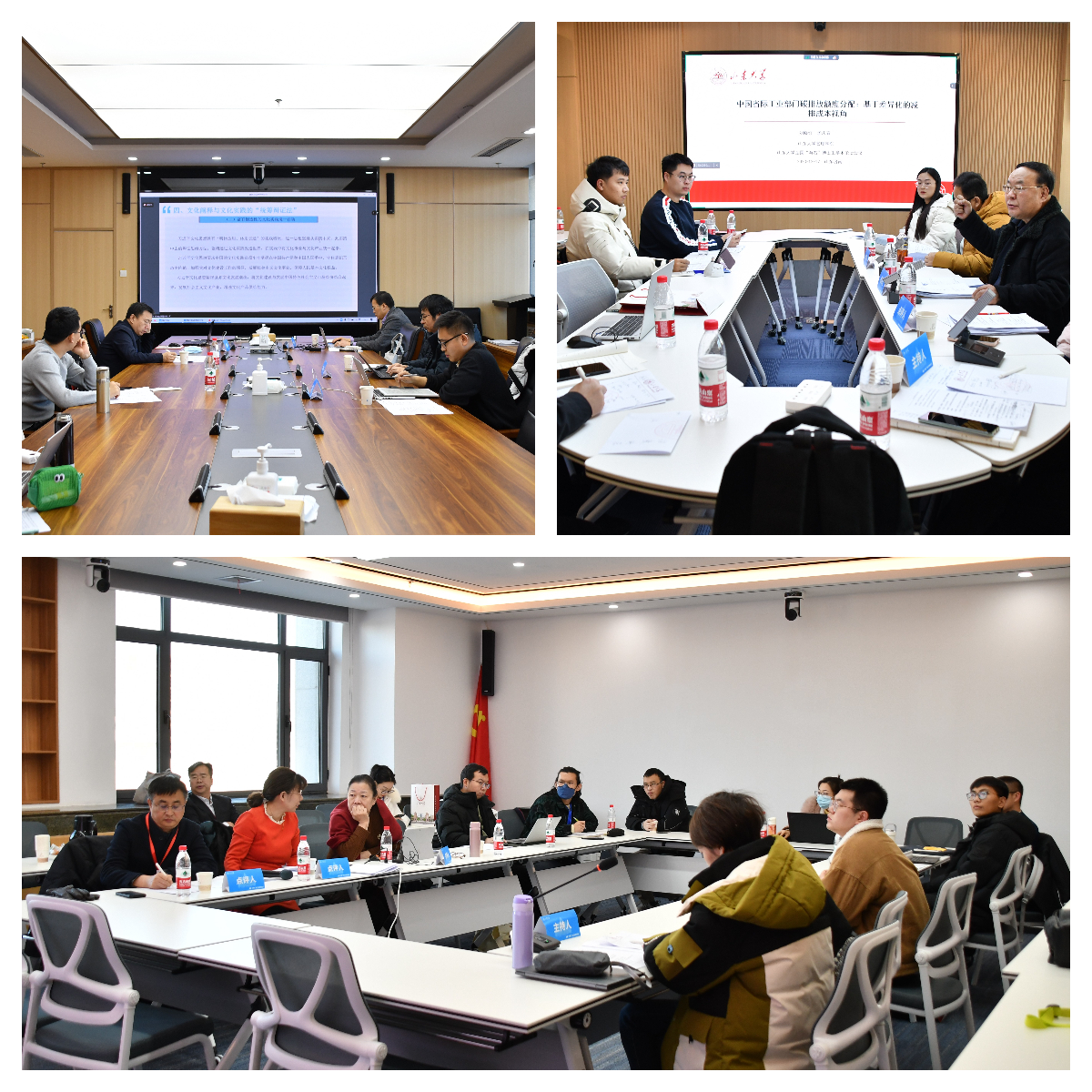
In the afternoon, three parallel forums were held. Focusing on “Research on the Basic Theoretical Issues of Chinese modernization”, “Research on the Basic Theoretical Issues of Culture & Economic Development and Culture & Management Enhancement”, “Research on the Relationship between Excellent Traditional Culture and Chinese Modernization”, “The Ideas of Economics and Management in Excellent Traditional Culture and Application in Modernization Practice”, “Excellent Traditional Cultural Thought in Chinese Modernization Practice”, etc., the authors of the 26 selected papers shared their presentations and reviewers commented on the presentation papers.
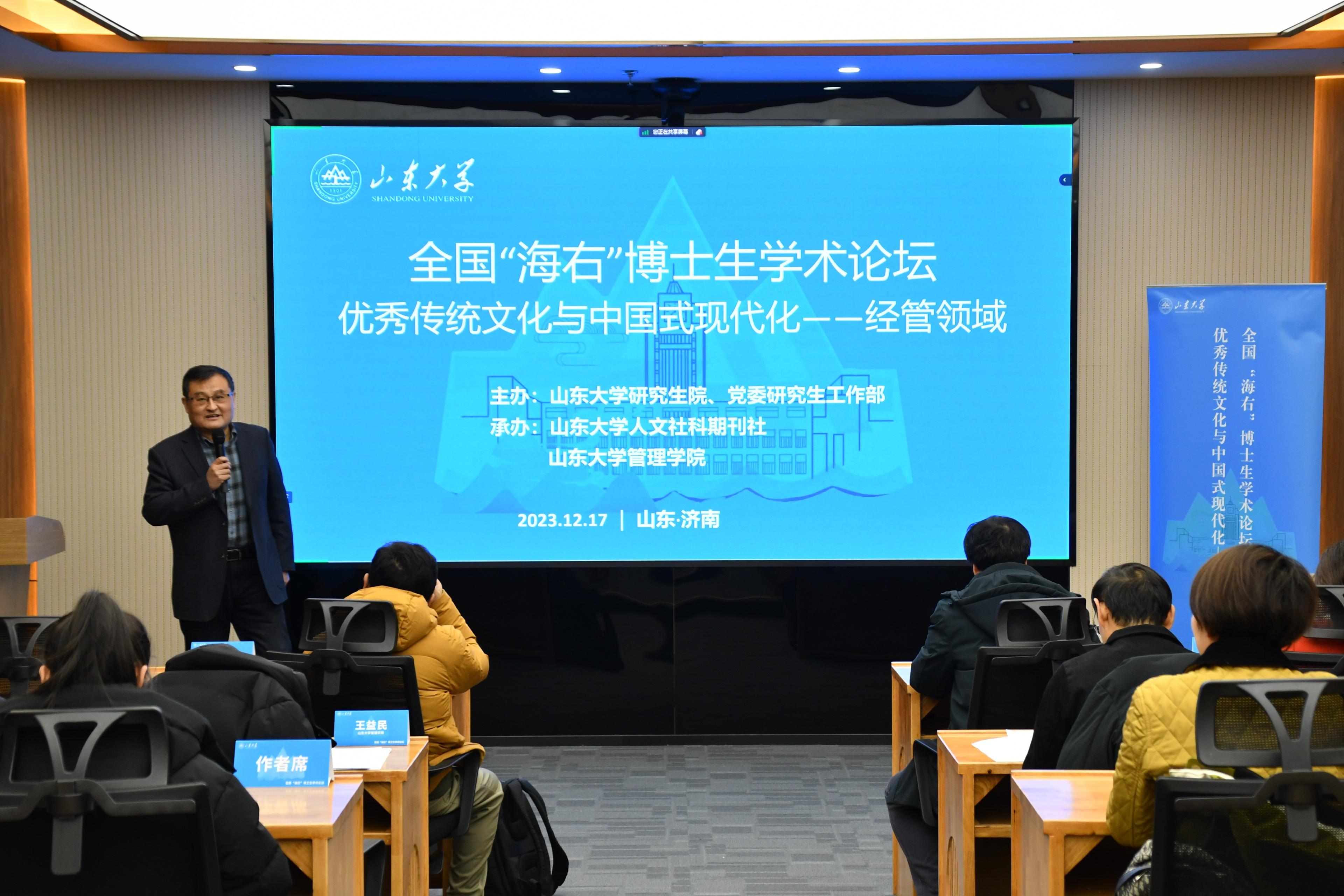
At the closing ceremony, the guests of honor presented award certificates to the authors of the excellent thesis winners of the forum. Wang Yimin, Vice Dean of the School, presided over the closing ceremony.
The forum was attended more than 60 experts, scholars, and doctoral students from Nankai Business Review, China Economic Studies, China Population, Resources and Environment, Economic Perspectives, Contemporary Finance & Economics, Economic Theory and Business Management, Renmin University of China, Central University of Finance and Economics, Minzu University of China, China University of Petroleum, National University of Defense Technology, etc.
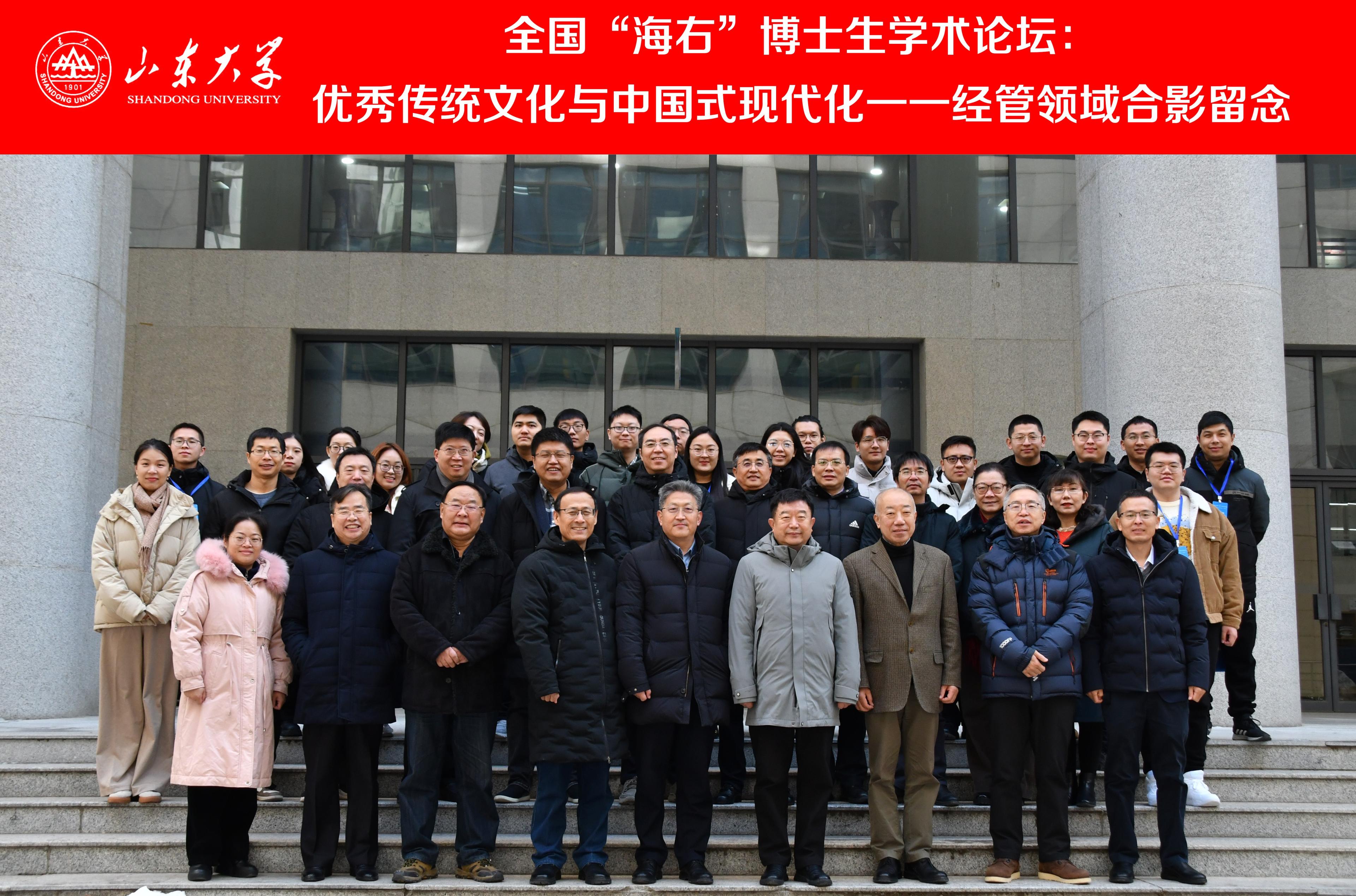
To further implement the strategy of “Developing the University by Academics and Strengthening the University by Talents”, strengthen the academic exchanges between postgraduates at universities, and form a good academic style of research, Shandong University has launched the 2023 National “Haiyou” Doctoral Cloud Forum Support program, and the current “Haiyou” Doctoral Academic Forum is one of the series of activities.